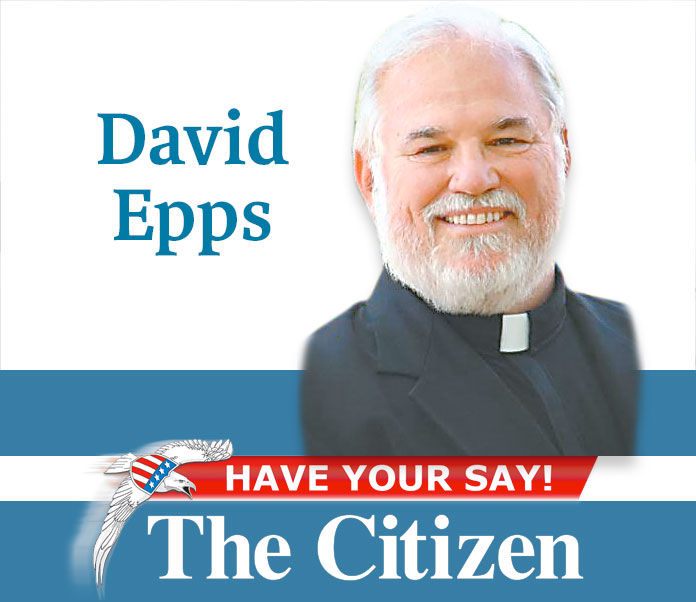America, it appears, has been brought to a virtual halt as a result of the outbreak of the coronavirus, now designated as Covid-19. In a matter of days, the stock market plummeted, businesses closed, schools were shut down, hospitals went on lock-down, national and state emergencies were declared, and churches all across the nation sat empty on Sundays. Even a nuclear detonation within our borders might not have had such an effect.
People stopped shaking hands, giving hugs, meetings were canceled, surgeries delayed, funerals and weddings postponed, employees furloughed or laid off, major sports events canceled, and essential items were in short supply — even toilet paper couldn’t be found.
Pastors and priests and other religious leaders across the nation were being asked to cancel religious meetings by those in governmental authority, something that has never happened in my lifetime. It’s one thing for a church to be closed during an impending hurricane or other natural disaster and quite another to have the political leaders request or demand it. What to do?
For me, the situation immediately brought three separate responsibilities into conflict with one another. (1) Obedience to the scriptures; (2) Submission to government mandates; (3) Protection of the vulnerable in our congregations.
When faced with the authorities mandate to stop preaching, in Acts 5:29 we read the response of St. Peter and the apostles: “Then Peter and the other apostles answered and said, ‘We ought to obey God rather than man.’”
Clearly, the teaching is that when the world and the Church are opposed, the Church does not have the requirement to submit. There is also the admonition in Hebrews 10:25, “And let us not neglect our meeting together, as some people do, but encourage one another, especially now that the day of his return is drawing near.”
On the other hand, the New Testament teaches that the secular government is to be respected. “Romans 13 elaborates on the origin and institution of government as something that God ordains. The great theologian Augustine said that government is a necessary evil, that it is necessary because of evil. And most theologians in the history of the church have said that human evil is the reason even corrupt government is better than no government at all. The function of government is to restrain evil and to maintain, uphold, and protect the sanctity of life and of property. Given this function, the Christian understands that government is ordained of God, and so Christians, first of all, are called to respect whatever it is that God institutes and ordains.” – R.C. Sproul.
St. Paul in Romans 13 writes, “Let everyone be subject to the governing authorities, for there is no authority except that which God has established. The authorities that exist have been established by God. Consequently, whoever rebels against the authority is rebelling against what God has instituted, and those who do so will bring judgment on themselves. For rulers hold no terror for those who do right, but for those who do wrong. Do you want to be free from fear of the one in authority? Then do what is right and you will be commended. For the one in authority is God’s servant for your good. But if you do wrong, be afraid, for rulers do not bear the sword for no reason. They are God’s servants, agents of wrath to bring punishment on the wrongdoer. Therefore, it is necessary to submit to the authorities, not only because of possible punishment but also as a matter of conscience.”
The third responsibility is to the people of the local faith community. In my world, as a priest, I hold the designation of “Father.” Part of the role of a father is to protect and provide for those in his family. Similarly, a “pastor” is a “shepherd” and also has the responsibility to care for the flock which includes protection and provision.
How does one protect the most vulnerable members of the congregation, the elderly (over 60) with co-morbidities? And how does one do that and also be true to the scriptures about submitting to civil authority and, on the other hand, obeying God when that obedience brings one into conflict with civil authority? It is not an easy question to answer.
As of this writing, we, in our church, are struggling with this issue. Last week we had church but encouraged those people at risk, and those who felt that church might be unsafe, to stay home and join us on the live stream. A little more than half stayed home.
Now, the authorities as asking us to limit our gathering to ten or less. And for how long? Does anyone really believe this crisis will be over in two weeks?
Most local churches do not have a surplus of funds. Too many weeks, or a few months of not gathering will likely result in the bankruptcy of hundreds of churches. The same is true of businesses in the community.
Some politicians are stating that up to a trillion dollars might be available to assist the businesses who get into trouble, but no one is making that offer to religious organizations. Nor should they.
Some churches, especially the larger organizations, have already gone to having their congregations stay home and join the worship service via computer. But many smaller congregations do not have the technology to offer this alternative. In many churches, believe it or not, the majority of people, depending on the location, do not own computers, tablets, or smart phones.
Tonight, our governing council (called the Rector’s Council) is meeting to address the issue of what to do, as it pertains to gathering for worship, during this crisis. Whatever the decision, it will not be a perfect one.
Like other churches, we must decide what we can do to minister to our people and, at the same time, protect them, to the best of our ability, from this virus while, at the same time, stay true to the scriptures and to our spiritual ethos.
The good news in all this is that, this too, shall pass. It is very likely that it will take time to recover and that things will change.
We have discovered how vulnerable our economy truly is. We have discovered that many essential items are not produced in this country, including essential medical equipment and medicines. We have a lot to think about after all this is over.
In the meantime we will do what needs to be done and, hopefully, we will aid one another during this time. If we learn from this, we may even be a stronger people.
[David Epps is the pastor of the Cathedral of Christ the King, 4881 Hwy. 34 E., Sharpsburg, GA between Newnan and Peachtree City (www.ctk.life). He is the bishop of the Diocese of the Mid-South which consists of Georgia and Tennessee and the Associate Endorser for the Department of the Armed Forces, U. S. Military Chaplains, ICCEC. He may contacted at [email protected].]












Leave a Comment
You must be logged in to post a comment.